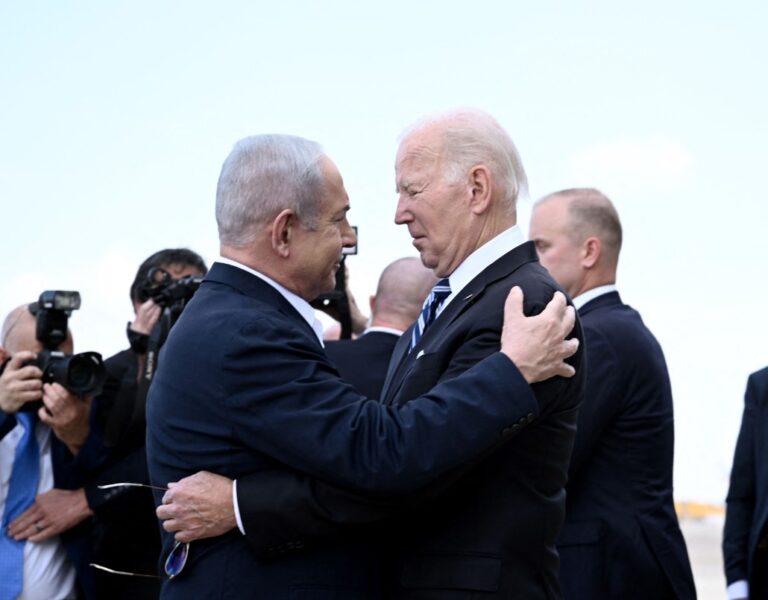The Oct. 27 U.N. resolution-presented by nearly 50 countries, including Turkey, Palestine, Egypt, Jordan, Saudi Arabia and the United Arab Emirates (UAE)-was approved by 120 votes to 14, with 45 nations choosing to abstain.
The text of the resolution condemns “all acts of violence against Palestinian and Israeli civilians, including all acts of terror and indiscriminate attacks, as well as all acts of provocation, incitement and destruction.” It also calls for “all parties to comply immediately and fully with their obligations under international law.”
The resolution was promptly rejected by Israel, which through its ambassador to the United Nations, Gilad Erdan, spoke openly of the international body’s lack of legitimacy. Especially for major powers, global and regional, the issue is part of broader strategic reasoning, often geopolitical and geoeconomic in nature.
Starting with the U.N. resolution, let us examine the reasons behind the positions taken by some crucial actors on the international scene who may also have relevant external weight in favoring an eventual de-escalation of the conflict.
Table of Contents
United States (vote on UN resolution: against)
Since the crisis in Gaza erupted, the United States has been unequivocal in its stance, fully supporting Israel, net of political differences between the administration of current U.S. President Joe Biden and that of Israeli Prime Minister Benjamin Netanyahu.
The United States has deep historical and economic ties with Israel. Since World War II, the U.S. has supported the formation of a Jewish state. And, to date, is Israel’s leading trading partner, with an annual bilateral exchange of nearly $50 billion in goods and services.
Above all, Tel Aviv is of inestimable strategic value to Washington’s interests in the Middle East, being a democratic ally and aligned with the Western axis in a region politically hostile to the West.
China (vote on UN resolution: in favor)
Beijing’s position on what is happening in Gaza is ambiguous, not too dissimilar to the Chinese approach to the Ukrainian issue. It is an attempt to balance the many interests at stake, foremost among them Chinese.
The ultimate goal is a positioning as a ‘neutral’ great power, supportive of peace and ready to offer an alternative to the more radical pro-Israel U.S. positions. Which in China’s eyes only fuel instability in the region.
The Chinese interests at stake are many and cut across different areas. Economically, China needs a stable Middle East as a crucial area of the Belt and Road Initiative (BRI), its pivotal project joined in 2022 by Palestine.
In addition, the People’s Republic is the largest trading partner of many Middle Eastern countries and, it is believed, also the largest single buyer of Iranian and Saudi oil. Geopolitically, China’s stance of “anti-Western neutrality” may be a further boost to Chinese leadership in the Global South.
Turkey (vote on UN resolution: in favor)
On the Gaza conflict, Turkish President Recep Tayyip Erdogan is in a particularly complex position. While his foreign policy has traditionally been oriented toward solidarity with the Palestinian people, Ankara had recently sought reconciliation with Israel, partly with a view to improving relations with Western powers.
Erdogan’s goal seemed to be for Turkey to become a key player in the mediation and reconstruction process that should follow the conflict, and many regional observers believed that the country was uniquely positioned to play that role.
However, recent stances suggest that the Turkish leadership is prioritizing the expansion of its influence in the Arab world over any prospect of reconciliation with Israel.
India (vote on UN resolution: abstain)
India’s stance following the Hamas attack was abrupt and clear. On the same day, Prime Minister Narendra Modi wrote that he was deeply shocked by the terrorist attack on the Jewish state and reiterated that India stands by Israel at this difficult time.
The Indian position in support of Israel, unlike the U.S. position, was not a given. Since its independence, India has for many years been sympathetic to the Palestinian cause, associating the plight of the Palestinians with a direct consequence of British imperialism.
Russia (vote on UN resolution: favorable)
Russian President Vladimir Putin condemned the Oct. 7 Hamas attack but also warned Israel against blockading the Gaza Strip, comparing the act to Nazi Germany’s siege of Leningrad during World War II.
In addition, Moscow called the conflict the result of a failure of U.S. diplomacy, accusing Washington of abandoning efforts to help establish a Palestinian state.
Chinese and Russian diplomatic envoys for the Middle East later met to discuss cooperation aimed at calming the situation, emphasizing their commitment to the two-state solution.
Brazil (vote on UN resolution: favorable)
Brazil, which recently assumed the rotating presidency of the UN Security Council, immediately sought to position itself in a balanced way. It condemned the attack on Israel launched by Hamas on Oct. 7 and also the Israeli retaliation with airstrikes in the Gaza Strip.
“Hamas must release the Israeli children who were kidnapped from their families. Israel must stop the bombing so that Palestinian children and their mothers can leave the Gaza Strip through the Egyptian border,” President Lula said after the attack.
Read also: Who is gaining from the war between Israel and Hamas?












